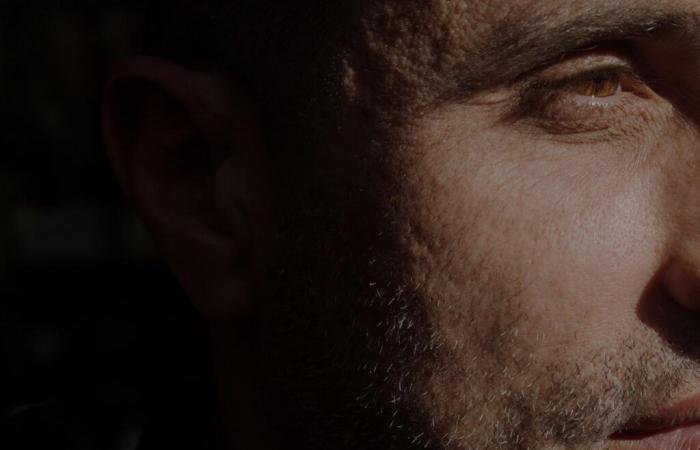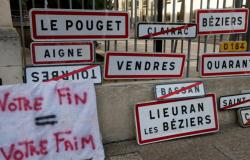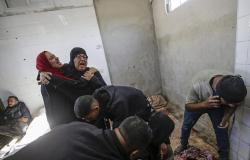The place is peaceful. Lush vegetation surrounds stables. Lounge areas have been set up. Everywhere, small objects, a wooden heart, potted candles, an old transistor radio, instill an intimate feeling that would encourage well-being, were it not for this striking detail: a sign from a fake street, “PTSD boulevard » (post-traumatic stress disorder, “stress disorders post-traumatic”), affixed between horse boxes.
Read also | Live, war in the Middle East: “I have exhausted all the words to explain what is happening,” says Josep Borrell, head of European diplomacy
Read later
For months, “Danny’s ranch”, thirty kilometers south of Tel Aviv, in Sitria, has welcomed hundreds of Israeli soldiers returning from Gaza, traumatized by the war, the longest and bloodiest ever undertaken by Israel. Israel in retaliation for the massacre of October 7, 2023 committed by Hamas commandos on Hebrew territory.
Several times a week, these soldiers follow therapy sessions here, both collective and individual, to try to free themselves from the nightmarish images that haunt them. Some come on their own, but many are increasingly sent by their superiors. In mid-October, General Eyal Zamir, director general of the Ministry of Defense, which partially finances the rehabilitation programs, came to visit the site. Horses are part of the care pathway. They reassure.
That day, at the edge of the open-air arena, half a dozen men talk among themselves around a large round table on which sits an assault rifle. One is in a military uniform, another, a white t-shirt and cap pulled down on his head, was one of the soldiers who identified the body of Yahya Sinouar, the leader of Hamas, killed by an Israeli patrol in the south of the Gaza Strip, October 17.
Read also | Article reserved for our subscribers Yahya Sinouar, radical military and political leader of Hamas, architect of the October 7 attack, is dead
Read later
Like most of his peers, he chose to slip away. Adi stays. On the express condition of not mentioning his last name, he agrees to confide. “We are monsters to you, aren’t we? In many other countries too, by the way…”he begins, before interrupting himself. He searches for his words.
“A cage under fire”
At 43, this reservist – in Israel, each soldier is assigned to a reserve unit at the end of his military service until the age of 51, for more or less long periods – was sent to Gaza in the hours following October 7. “I commanded a unit responsible, on the front line, for opening the roads with bulldozers and helping the tanks, it was like being in a cage under fire…” New break. « Ils [les Palestiniens] do not have uniforms, we do not know who the enemy is, the tension was very high, we did not rest, we did not eat”he continues with effort. In December 2023, in Chadjaya, a district of Gaza City razed by Israeli forces at the cost of hundreds of deaths, Adi was injured by a rocket fire. Two weeks later, he was sent back to Khan Younes, in the south of the enclave, where the army had just penetrated.
You have 74.52% of this article left to read. The rest is reserved for subscribers.






